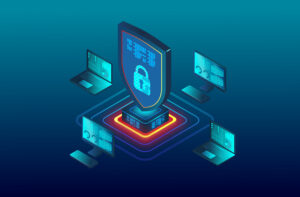By Caesar Tonkin, Managing Director, Armata Cyber Security
Data breaches are highly disruptive for companies. When a cyber attacker successfully infiltrates an organisation’s data source and exposes sensitive and confidential data, the result is a smear on the company’s good name, with a consequential loss of trust and potentially a loss of income for the business.
Since generalised remote working became a new norm, IT security teams began facing new challenges in protecting their companies from cyber threats. For threat actors, the personal devices of employees represent a potential doorway to organisational networks, making it harder for security teams to monitor threats.
Endpoint detection and response (EDR) is used to continuously monitor, detect and respond to threats and malicious activity on endpoints and servers that have evaded prevention from typical anti-virus technology. It includes threat hunting using advanced threat detection capabilities to effectively protect against cyber threats.
While antivirus software is essential for protecting against known malware threats, endpoint detection and response solutions offer more advanced capabilities for detecting and responding to a wider range of cyber threats, including those that are unknown or evolving. EDR solutions perform continuous data collection and analytics, reporting to a single centralised system. This provides a security team with full visibility into the state of the organisation’s endpoints from a single console. EDR solutions also continuously monitor threats at all endpoints of the network, delivering more comprehensive and holistic protection.

Image: Jack Moreh, freerangestock.com
What Business Risks Should Be Managed?
Organisations need real-time and continuous monitoring of advanced malware and harmful techniques used by sophisticated threat actors. Advanced attacks typically lead to the compromise of an organisation because of ransomware. Such successful attacks could lead to financial losses or data exfiltration.
It is important to ask the following questions:
- To what extent can your existing endpoint protection technology detect and respond to advanced malware and threats?
- How confident are you that your organisation can defend against ransomware?
- How well can your organisation defend against zero days?
- How well can your organisation defend against credential theft, lateral movement, data exfiltration and insider threats?
- Has your organisation experienced a ransomware attack that you have recovered from effectively?
Peace of Mind
The Armata EDR Service enables proactive threat detection, and fast and accurate response to incidents, with the aim of preventing an attack before it becomes a breach, and thereby allowing your organisation to get back to business quickly.
Armata Cyber Security provides continuous monitoring, detection and response to threats in our customers’ environments.
Our team has several years’ collective experience in delivering a next generation antivirus and EDR Service to various companies. We use Sentinel One, as a leading EDR platform, to deliver our EDR Service.
Our EDR Service records sophisticated, high-risk malicious activity on endpoints and servers, in order to catch incidents that are able to evade prevention from typical anti-virus technology.
- We combine advanced threat detection capabilities with expert incident response to effectively protect organisations against cyber threats.
- We combine EDR with vulnerability scanning, technical policy compliance scanning, threat feeds to detect indicators of compromise, and automated remediation, such as patch management. This is a comprehensive, advanced cyber defence service. Our EDR Service includes threat hunting activities where the EDR agent is deployed across your endpoints and servers.
- As part of on boarding your organisation into our EDR Service, we determine how effective your existing endpoint protection technology is at detecting and responding to advanced malware and threats.
- We determine if there are specific threats or attack vectors that your organisation needs to defend against (for example, ransomware attacks, zero days, fileless attacks, credential theft, lateral movement, data exfiltration or insider threats).
- We tailor our EDR Service to defend against existing advanced persistent threats.
Our EDR Service Operations is based on the NIST Cyber Security Framework – a set of guidelines for mitigating organisational cybersecurity risks, published by the US National Institute of Standards and Technology (NIST) – and operating processes include a defined Service Level Agreement.
Contact Us
We will gladly set up a workshop with you to confirm your EDR needs, during which our cybersecurity experts will showcase real-world threat hunting and advanced defences using EDR.